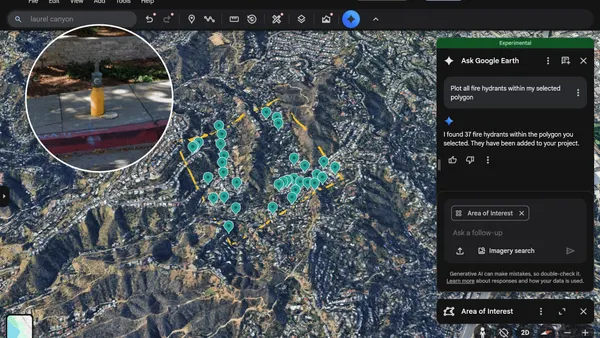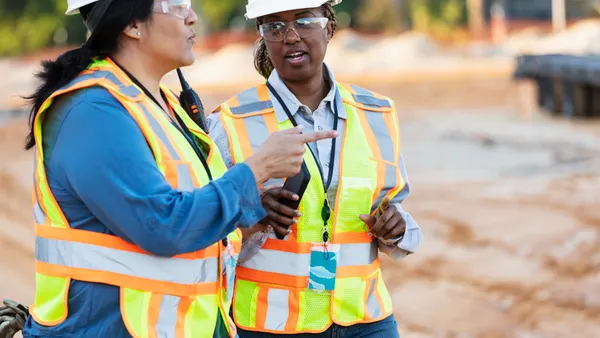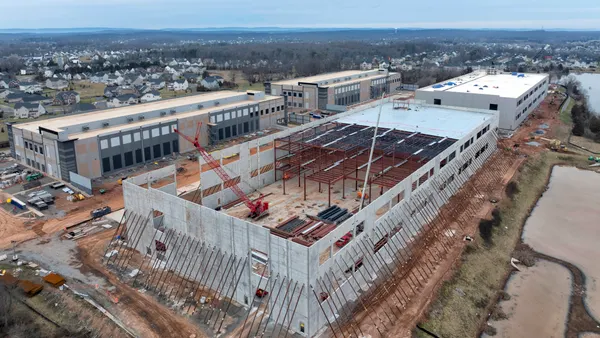Dive Brief:
- The Los Angeles Department of City Planning issued a draft environmental impact report reviewing the Olympic Tower, a proposed 58-story, mixed-use high-rise that could start construction downtown within the next two years. The building's designer, Nardi Associates, said the building would be a "kaleidoscopic-like landmark."
- Nardi refers to the building as a "monumental urban tree" with vegetation growing alongside digitized landscape and graphic art images. If the project is approved, developer Olymfig26 LLC would have to demolish an existing building that houses a car wash and other businesses. The new tower would include approximately 65,000 square feet of retail and commercial space across three stories; more than 33,000 square feet of office space across six stories; almost 11,000 square feet of hotel conference and ballroom space and an 8,500-square-foot condo amenity area sharing one story; 374 condominiums occupying 24 stories; a 373-room hotel taking up 17 stories; and 14 levels of parking — six underground and eight at above-ground podium level, with six parking levels "wrapped" in more office space.
- The report cited public concerns about increased traffic and pollution, the vulnerability of the site to earthquakes, increased stress on public utilities, land use conflicts, noise and more. The authors of the report found that most of the potential negative impacts — including poor air quality during construction and construction vibration — could be mitigated through adequate measures so that their impact would be "less than significant," with the exception of traffic. The report determined that significant impact due to increased traffic is "unavoidable."
Dive Insight:
Increased traffic, as well as the resulting noise and pollution, is one of the reasons Los Angeles activists were driven to put the Neighborhood Integrity Initiative on last year's March ballot. The legislation would have put a temporary moratorium on mega, mixed-use developments like Olympic Tower, but voters ultimately rejected the measure.
Projects which promise to be a boon for city coffers, provide permanent jobs and contribute to the local economy during construction often win out, but not always. Earlier this year, one of the Los Angeles activist groups behind the failed ballot initiative helped scuttle a 27-story, 269-unit residential project in the Koreatown area of Los Angeles. The group won its case with the argument that the city did not require developers to submit an environmental impact report, but the driver of their action was the claim that the proposed building did not fit in with the lower-rise buildings in the neighborhood.










